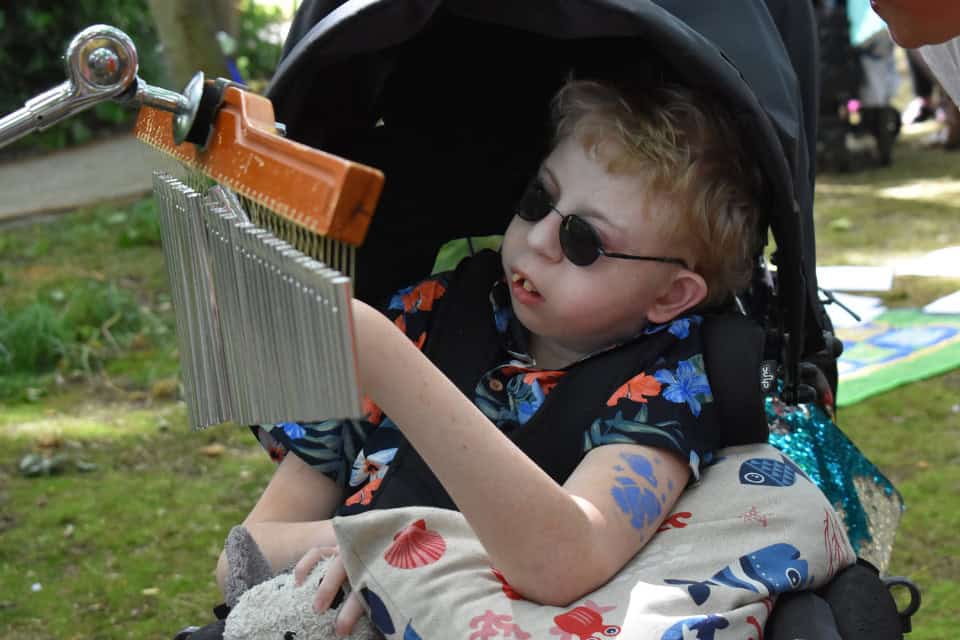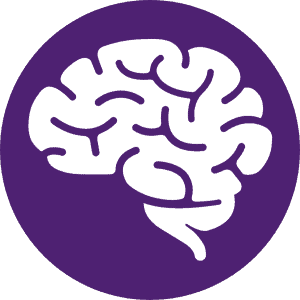Music therapy
Music therapy is based on the understanding that all human beings have an innate response to music, which remains unchanged by illness, disability or emotional state. Our music therapists use improvised music-making informed by therapeutic theories to engage, reach out and support each person, whatever their disability, difficulties or diagnosis.

A music therapy session may include:
- Exploring different sounds using easily accessible percussion instruments.
- Exploring vocalisations together through adapted or familiar songs.
- Hearing their own sounds reflected back by the therapist who is trained to mirror and match their emotional expression using music.
- Musical improvisation.
- Songwriting.
- Relaxing to music.
- Hearing the therapist’s music to help support them to move in ways which benefit their overall wellbeing.
Benefits of music therapy
‘Jane came to us and began what can only be described as a magical and unimaginable journey. In this age of financial pressure on services, I would like to champion the value of such therapies, which for my son opened his heart, his world and his voice.’
Other available support
Short breaks and expert nursing care
Family activities and events
Symptom management nursing service (SMNS)
Physical therapies
Care at end of life
Bereavement support
Wellbeing support
Read our latest editions and sign up to hear more!



